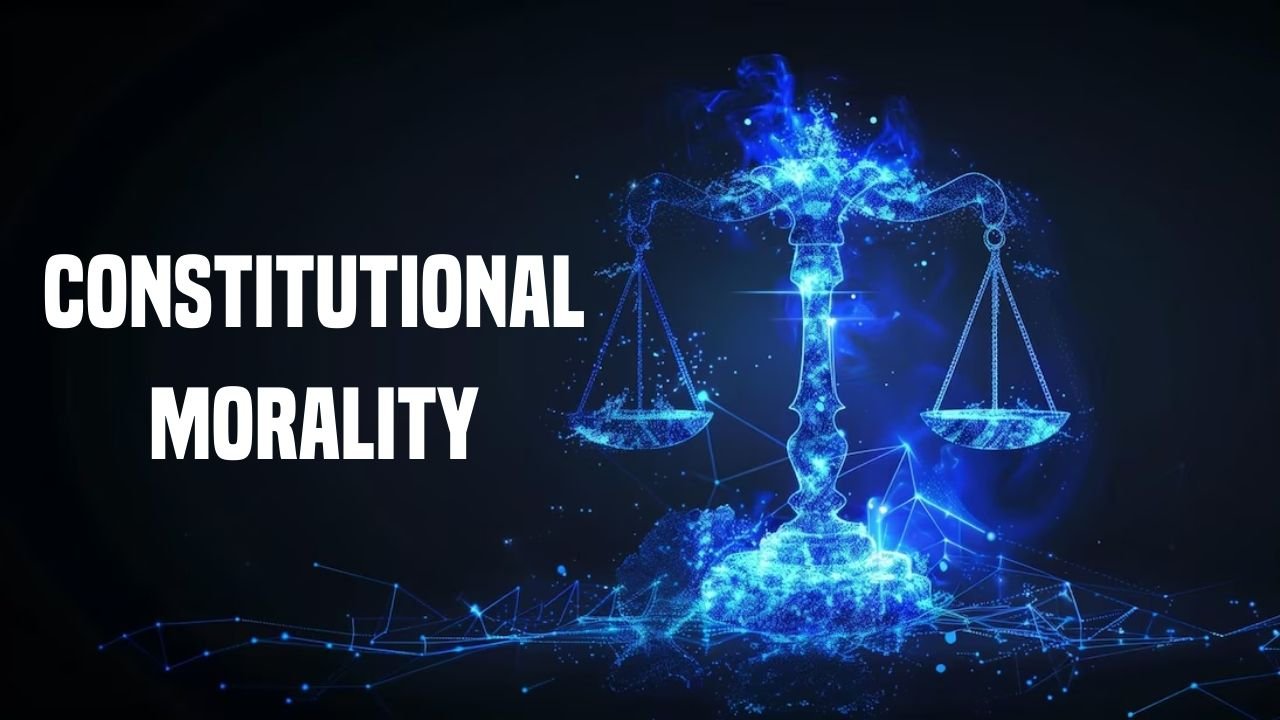Why in the News?
- The idea of constitutional morality features repeatedly in recent Supreme Court judgments (e.g., Sabarimala, Puttaswamy, State v. NCT of Delhi, Manoj Narula), making it central to debates about how public offices should behave.
- Growing concerns about political polarisation, appointments of controversial public figures, and institutional overreach have renewed attention on whether legal rules alone can protect democratic values or whether ethical norms (constitutional morality) must guide action.
Ethical Issues Involved
- Conflict Between Law and Morality
- Core idea: Law regulates what people must or must not do externally; morality concerns what people ought to do internally (their conscience and moral reasons).
- Philosophical frame:
- Kantian (deontological) view: morality is about duty and principles, one acts because it is right, not for consequences.
- Utilitarian view (Mill): morality is about outcomes, greatest happiness for the greatest number.
- These frameworks sometimes recommend different actions even when the law is the same.
- Practical dilemma: A legal provision may allow an action (e.g., appointing a person facing serious charges if law does not bar it), but constitutional morality may demand restraint because the appointment erodes public trust. This tension is visible in Manoj Narula Case, where the Court said it is expected to avoid appointing persons accused of heinous offences even if not legally barred.
- Why it matters: If courts convert every moral expectation into enforceable law, they risk overstepping into political choice; if they ignore moral expectations, constitutional offices may be misused. The balance determines whether democracy remains principled or becomes merely procedural.
- Distinction Between Conventions and Enforceable Law
- Dicey’s distinction: Constitutional conventions (habits, norms) guide conduct but are not judicially enforceable; constitutional law is enforceable.
- Example: The duty to seek collective Cabinet advice is a convention; courts enforce legal limits but may be reluctant to police all conventions.
- Accountability and Ethical Leadership
- Problem: Breaches of constitutional morality often produce political, not legal, consequences (loss of public trust, electoral punishment).
- Example: Civil servants who upheld constitutional ethics (like N. Seshan enforcing fair elections; E. Sreedharan in public projects) shows how individual integrity preserves constitutional values.
- Moral Foundations of Rights and Equality
- Constitution as moral text: The Preamble and fundamental rights express moral commitments – justice, liberty, equality, fraternity.
- Theoretical anchor: Rawlsian fairness – policy must protect the least advantaged; failure to do so is a moral failure of the constitutional order.
- Role of Citizens – Moral Duty and Civic Education
- Citizens’ duty: Uphold tolerance, constitutional literacy, and participate in democratic processes.
- Risk: Rising majoritarianism or indifference erodes constitutional morality faster than any law can remedy.
Course of Action
- Civic and Ethical Education
- What: Include constitutional values, ethics, and case-studies in school and civil service training.
- How: Mandatory modules on constitutional duties, mock debates on landmark cases, and scenario-based ethical decision exercises.
- Why: Builds citizen and officer sensitivity to the spirit of the Constitution beyond its text.
- Ethical Leadership and Role Models
- What: Encourage leaders to act as trustees of public office (Gandhian trusteeship).
- How: Public recognition for integrity; transparent performance records; clear conflict-of-interest rules.
- Why: Visible role models (e.g., Ashok Khemka’s ethical stands) change norms and expectations.
- Strengthen Institutions & Respect Conventions
- What: Protect the independence of the judiciary, Election Commission, CAG, and other guardians.
- How: Rules to insulate institutions from political pressure; public reporting of breaches of conventions.
- Why: Well-functioning institutions translate moral norms into sustained public practice.
- Embed Ethical Appraisal in Policymaking
- What: Require an ethical impact statement for major legislation and appointments.
- How: Cross-check against constitutional values (equality, dignity, non-discrimination) and solicit civil society inputs.
- Why: Prevents myopic decisions that are legal but morally corrosive.
- Accountability Mechanisms Beyond Courts
- What: Political, administrative and civic remedies (parliamentary scrutiny, ombudsmen, media scrutiny).
- How: Strengthen parliamentary ethics committees, whistleblower protection, and independent inquiry panels.
- Why: Many breaches are political; remedies must therefore operate in political and civic spaces, not only in courts.
Conclusion
Constitutional morality transforms the Constitution from a legal text into a moral compass for public life. Sustained education, ethical leadership, and robust institutions are essential to ensure that constitutional guarantees become lived reality, not empty words.
| Ensure IAS Mains Question Q. “Constitutional morality, rather than public morality, must guide the actions of institutions and individuals in a democracy.” Discuss the ethical significance of this statement with suitable examples. (250 words) |
Also Read | |
| UPSC Foundation Course | UPSC Daily Current Affairs |
| UPSC Monthly Magazine | CSAT Foundation Course |
| Free MCQs for UPSC Prelims | UPSC Test Series |
| Best IAS Coaching in Delhi | Our Booklist |




